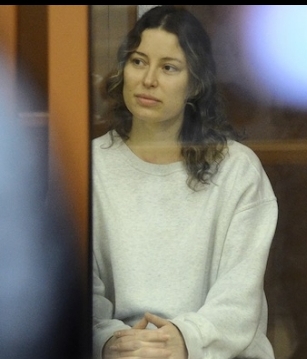THURSDAY April 10, 2025 |
By thenewsdesk.ng
In a significant diplomatic development, a Russian-American citizen, Ksenia Karelina, has been released as part of a prisoner swap between Moscow and Washington. The exchange, which took place in Abu Dhabi early Thursday, April 10, 2025, morning, marks the second such swap between the two nations in less than two months.
Karelina, a Los Angeles resident and amateur ballerina, had been incarcerated in Russia for over a year after being arrested in Yekaterinburg in early 2024. The 32-year-old was convicted of treason for donating funds to a US-based charity that provided humanitarian support to Ukraine amid its ongoing conflict with Russia. She was sentenced to 12 years in a penal colony for her involvement, sparking widespread international condemnation.
US Secretary of State Marco Rubio confirmed Karelina’s release, stating she was “on a plane back home to the United States” and had been “wrongfully detained by Russia for over a year.” He credited President Trump for securing her freedom and reaffirmed the administration’s commitment to working for the release of all Americans detained abroad. Rubio added, “President Trump will continue to work for the release of ALL Americans.”
The prisoner swap also saw the release of Arthur Petrov, a dual German-Russian citizen who had been arrested in Cyprus in 2023. Petrov faced charges of illegally exporting microelectronics to Russia, allegedly for use by manufacturers connected to the Russian military. The swap, which took place on neutral ground in Abu Dhabi, was mediated by authorities from both countries.
CIA Director John Ratcliffe was reported to have been present at the exchange, underscoring the importance of the event in the context of ongoing US-Russia tensions.
This marks the second high-profile prisoner swap in just two months. In February, Russian national Alexander Vinnik, imprisoned in the United States for money laundering charges, was exchanged for American schoolteacher Marc Fogel, who had been detained in Russia for alleged drug-related offenses.
The successful release of Karelina is seen as a diplomatic win for the United States, though it raises ongoing questions about the growing use of prisoner swaps in international diplomacy, particularly between nations with strained relations such as Russia and the US.
Karelina’s case had drawn widespread attention, with advocacy groups and international human rights organizations decrying her detention as politically motivated. Her return to the US is expected to bring relief to her family and supporters, who have long campaigned for her release.
Related posts
Categories
- Advertisements (1)
- Agriculture (45)
- Breaking News (26)
- Business (598)
- Crime (989)
- Education (319)
- Entertainment (128)
- Features (13)
- For The Records (43)
- Foreign News (1,189)
- Health (219)
- Home News (332)
- Interview (9)
- Judiciary (349)
- Lifestyle (140)
- Local News (111)
- National News (1,448)
- Opinion (26)
- Politics (1,012)
- Religion (157)
- Science and Technology (125)
- Security (680)
- Sports (880)
- States' News (819)
- Transportation (330)
- Uncategorized (10)

